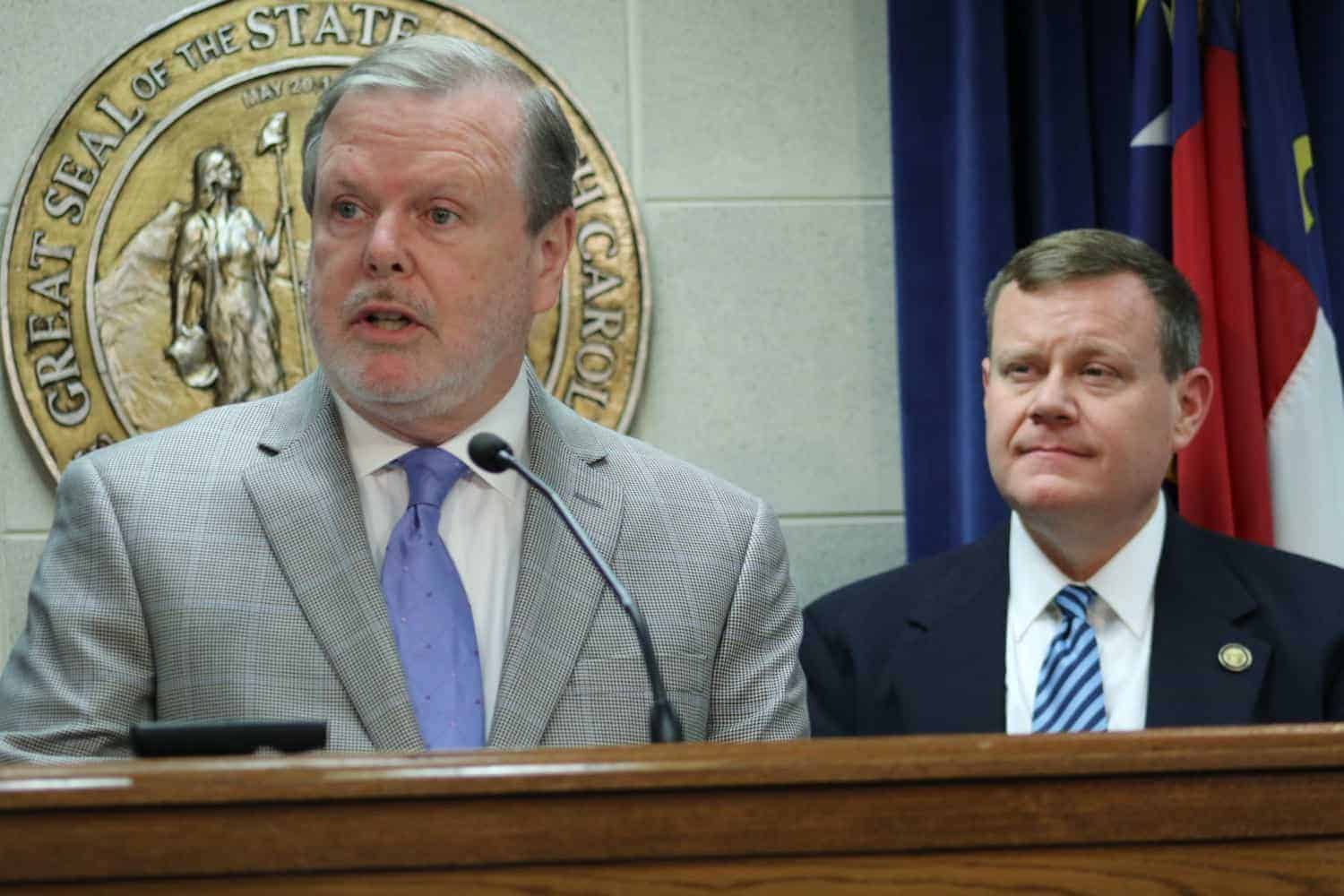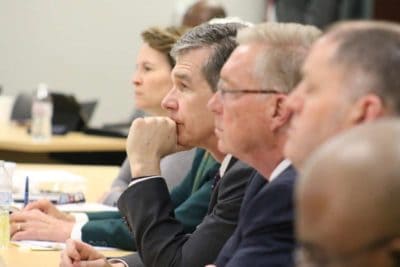As several thousand teachers head to Raleigh tomorrow to ask for more student funding and higher salaries, Republican leaders are promising an average 6.2 percent increase in teacher pay for the 2018-19 fiscal year.
At a press conference Tuesday afternoon, House Speaker Tim Moore, R-Cleveland, and Senate President Pro Tempore Phil Berger, R-Rockingham, said part of the adjustment to the 2017 biennium budget will bring average teacher salary to about $53,600 next year. Berger said per-pupil spending will also increase but did not give specifics.
“Really, we believe that growth is what matters most, particularly when you inherit frozen salaries and billions of dollars of debt like we did when Republicans took over back in 2011,” Moore said. “Long-term salary growth is, in fact, what North Carolina teachers need and that’s exactly what they’ve gotten.”
Democratic legislators and advocates, including the North Carolina Association of Educators (NCAE) organizing Wednesday’s rally, argue teacher pay and education investments have fallen since Republicans took control of the legislature. This year’s National Education Association (NEA) report ranked the state 37th in the nation for teacher pay, estimating the state’s average teacher salary at $50,861, up from $49,970 last year, when North Carolina was ranked 39th. Since 2009, the state’s average teacher salary has increased by five percent. However, when taking inflation into account, it has dropped nine percent. The estimated national teacher salary average this year is $60,483.
Moore and Berger pointed to the NEA report’s placement of the state when looking at growth from year to year. North Carolina ranked second in change in average teacher salary over one year.
“You can’t go in and try to deal with a mess that we inherited in 2011 in just one swoop,” Moore said. “It takes time to get out of that.”
Governor Roy Cooper, in his proposed budget announced last week, suggested changing tax cuts scheduled for next year for individuals making more than $200,000 a year to generate revenue needed for an average 8 percent pay increase.
“Instead of prioritizing tax cuts for corporations and those earning more than $200,000, legislators should give real raises to all teachers,” Cooper said in a statement Tuesday responding to the Republican plan. “Making education the top priority means more textbooks and classrooms, not more tax cuts for those already at the top.”
Moore and Berger said the teacher salary raises will come while maintaining the tax cuts. “Every time I hear Democrats talk about raising taxes just on the wealthy, hold on to your wallet, because everybody ends up getting hit,” Berger said.
Berger said the budget will also include a revised teacher pay scale that takes beginning teachers 15 years to reach the highest salary. Moore said he thinks all teachers, regardless of experience, will receive raises, though he did not provide specifics. Critics of last year’s biennium budget pointed out that veteran teachers would not receive pay raises. Moore and Berger said their teams have put together this website to outline their teacher salary increases over recent years.
“Despite these facts, we know there’s a lot of politically motivated rhetoric and misinformation out there,” Berger said. “That’s why we want people to check the numbers for themselves.”
Berger said specific bonuses will be rewarded to teachers in certain grades who grow student achievement. “We’re interested, obviously, in improving the base pay but we’re also very interested in pay-for-performance measures,” he said.
Moore and Berger said they will each meet with teachers tomorrow from their respective districts. Berger said he is open to hear teacher perspectives but feels the NCAE’s motivations are political. “It’s an effort on the part of Democrats to support Democrats,” Berger said.
“I think we all listen to the teachers that talk with us,” Berger said. “I would say that the fact that a million kids are not going to be in school tomorrow because a political organization wants to have folks come here to meet with us or send a message or whatever is probably the front and center thing about this. But no, it’s not … all politics and sound and fury. I’ve said I’ll sit down and talk with teachers from the district that I represent. We’ll see what they have to say.”



